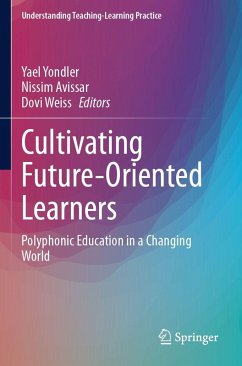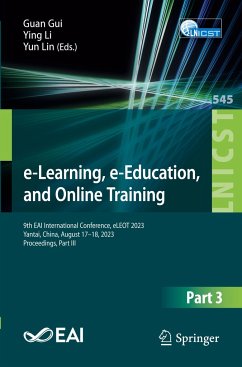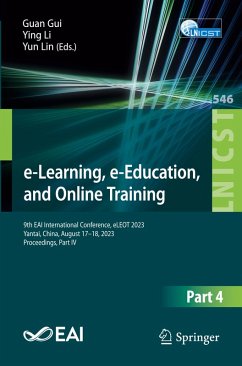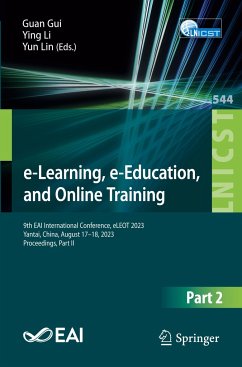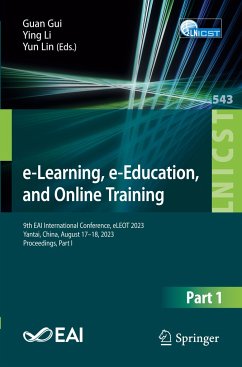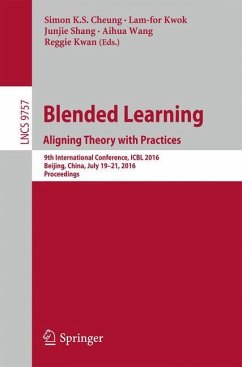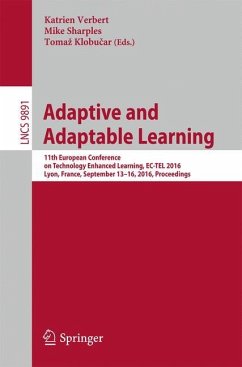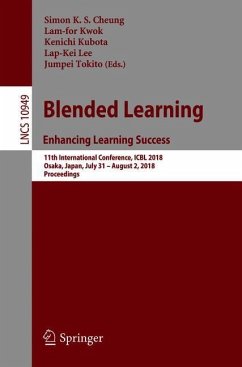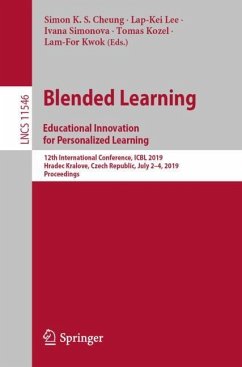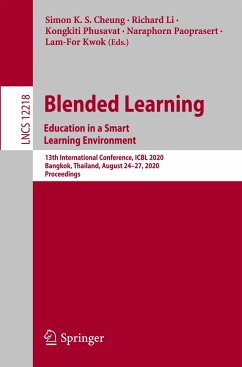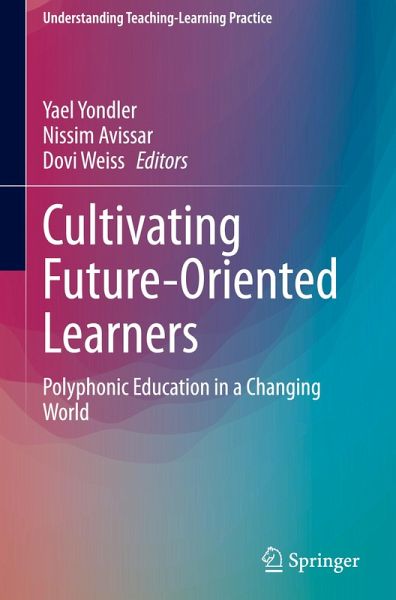
Cultivating Future-Oriented Learners
Polyphonic Education in a Changing World
Herausgegeben: Yondler, Yael; Avissar, Nissim; Weiss, Dovi

PAYBACK Punkte
61 °P sammeln!
The book Cultivating Future-Oriented Learners: Polyphonic Education in a Changing World offers a new theoretical and practical educational approach, responding to our era's challenges. The polyphonic paradigm it proposes uses current educational elements to produce "a new whole" connecting technology, varied learning spaces, humanizing pedagogy, and global values of personal, social, and environmental responsibility.Combining all these elements, the presented polyphonic wisdom model enables teachers to design a technology-enhanced, pluralistic, and dynamic learning environment where individual...
The book Cultivating Future-Oriented Learners: Polyphonic Education in a Changing World offers a new theoretical and practical educational approach, responding to our era's challenges. The polyphonic paradigm it proposes uses current educational elements to produce "a new whole" connecting technology, varied learning spaces, humanizing pedagogy, and global values of personal, social, and environmental responsibility.
Combining all these elements, the presented polyphonic wisdom model enables teachers to design a technology-enhanced, pluralistic, and dynamic learning environment where individual voices are heard while all the voices harmonize. Centered around human dignity and affinity between the personal and collective good, it aspires to assist educators in cultivating productive and value-based future citizens and teachers within a democratic society.
The book introduces thirteen unique teaching models to foster humanizing global values: diversity and inclusion, ecohumanistic responsibility, and a dialogue between diverse stands and perspectives. It guides learners toward attaining their objectives by acquiring independent learning skills. Together, these teaching models are a catalogue of practical implementation choices of the polyphonic wisdom model in various educational frameworks.
The envisaged readership encompasses educators and related professionals, but no less so anyone concerned about the current educational crisis who wishes to rethink education, technology, and values such as present and future personal, social, and environmental responsibility.
Combining all these elements, the presented polyphonic wisdom model enables teachers to design a technology-enhanced, pluralistic, and dynamic learning environment where individual voices are heard while all the voices harmonize. Centered around human dignity and affinity between the personal and collective good, it aspires to assist educators in cultivating productive and value-based future citizens and teachers within a democratic society.
The book introduces thirteen unique teaching models to foster humanizing global values: diversity and inclusion, ecohumanistic responsibility, and a dialogue between diverse stands and perspectives. It guides learners toward attaining their objectives by acquiring independent learning skills. Together, these teaching models are a catalogue of practical implementation choices of the polyphonic wisdom model in various educational frameworks.
The envisaged readership encompasses educators and related professionals, but no less so anyone concerned about the current educational crisis who wishes to rethink education, technology, and values such as present and future personal, social, and environmental responsibility.



